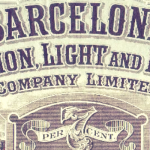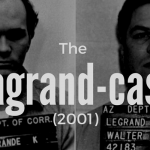To follow up on the latest International Law 1000 installment on treaties, I could have chosen for the Gabcikovo-Nagymaros case. But that case, while often used in the classroom, is too complex and boring. So for this Classic Cases series, I thought I’d do a case that I have always touched on for a more basic question: what is a treaty? In this case, Qatar v. Bahrain, the latter didn’t think it had entered into one. But perhaps it had.
Qatar v. Bahrain: A boundary dispute
The maritime and territorial dispute between Qatar and Bahrain is part of many lingering disputes about pieces of territory, and maritime boundaries in the Persian Gulf area. Qatar and Bahrain were trying to solve their long running dispute about, for instance, the Hawar islands and the Dibai and Qit’at Jaradah shoals. Saudi Arabia was trying to mediate between the parties, and was successful in selling the parties to either arbitration or judicial settlement of the dispute. In 1983, they agreed to consult with Saudi Arabia on seeking a binding, third-party ruling, should negotiations failed. In 1987, Qatar and Bahrain subsequently agreed to Saudi proposals to take their case to the International Court of Justice. This and other obligations were reaffirmed in the agreed meeting minutes of a 1990 meeting between the parties. In these minutes, they also agreed that after a certain period, ’the parties may submit the matter to the International Court of Justice’. So that is what Qatar did.
ICJ jurisdiction
Qatar argued that the 1987 and 1990, and the letters from both states accepting these texts, combined gave the Court jurisdiction to handle the case. These minutes established consent by Bahrain to have the Court decide the matter. According to Qatar, both texts included international obligations, and were in fact international agreements, i.e. treaties. Bahrain seemed dumbfounded, at least on paper. The Foreign Minister of Bahrain claimed that he never intended to agree to any binding obligation. It was only a ’political understanding’. Moreover, Bahrain argued that both states never treated these texts as binding agreements after 1991. Qatar relied on the text of the 1987 and 1991 documents, while Bahrain referred to its intent. So do we need to look at the text or the intention of the parties?
Text v. intention
What did the Court make of this dilemma? If you look at the texts, the wording actually suggest that the commitments that were made were also binding. Words like ’shall’ are a dead giveaway. And the Court agreed with Qatar and relied on the text and the text only. Moreover, ’ [t]he Court does not find it necessary to consider what might have been the intentions of [Bahrain] or [Qatar]. A clear rejection of intent as a determinative factor. That sounds a bit harsh and legalistic at first, but given the clear language of the documents, the Court could not decide otherwise. Treaties need to convey legal security, so there is consensus that certain language indicate binding obligations. In a sense, the Court implied intent of Bahrain by agreeing to the specific language by setting aside Bahrain’s later denial of that intent.
A cautionary tale
The Court’s clear reliance on text as opposed intention, makes clear once again that all kinds of documents can constitute a treaty. It is a cautionary tale for lawyers that drafting texts is an art. In this case, the language was rather straightforward. During my short tenure at the Dutch Ministry of Foreign Affairs, a booklet on the differences in language between binding and non-binding documents was readily available. Drafting texts is a lawyer’s bread and butter, and it is the lawyer that must signal what a state is signing up for. Before you know it, you have a treaty on your hands.
What is your experience with lawyers and texts? Infuriating? Let me know in the comments below, or through Facebook or Twitter.



